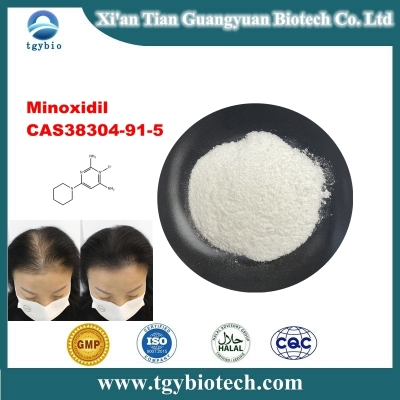-
Categories
-
Pharmaceutical Intermediates
-
Active Pharmaceutical Ingredients
-
Food Additives
- Industrial Coatings
- Agrochemicals
- Dyes and Pigments
- Surfactant
- Flavors and Fragrances
- Chemical Reagents
- Catalyst and Auxiliary
- Natural Products
- Inorganic Chemistry
-
Organic Chemistry
-
Biochemical Engineering
- Analytical Chemistry
-
Cosmetic Ingredient
- Water Treatment Chemical
-
Pharmaceutical Intermediates
Promotion
ECHEMI Mall
Wholesale
Weekly Price
Exhibition
News
-
Trade Service
Fasudil hydrochloride is an important chemical compound that has numerous applications in the chemical industry.
It is widely used as a catalyst in various chemical reactions and as a reagent in the synthesis of various organic compounds.
In this article, we will discuss the applications of Fasudil hydrochloride in the chemical industry in detail.
One of the most important applications of Fasudil hydrochloride is in the field of organic synthesis.
It is used as a reagent in the synthesis of various organic compounds, such as alkaloids, terpenes, and other natural products.
Fasudil hydrochloride acts as a strong acid catalyst and facilitates the reaction between the reactants, leading to the formation of the desired product.
This makes it an essential reagent in the synthesis of complex organic compounds.
Another important application of Fasudil hydrochloride is in the field of polymerization.
It is used as a catalyst in the polymerization of various monomers, such as styrene, butadiene, and acrylonitrile, to form polymers such as polystyrene, polybutadiene, and acrylonitrile-butadiene-styrene (ABS) resin.
Fasudil hydrochloride acts as a catalyst in these reactions, facilitating the formation of polymer chains and improving the yield and molecular weight of the polymers.
Fasudil hydrochloride is also used in the field of pharmaceuticals.
It is used as an intermediate in the synthesis of various drugs, such as antibiotics and anti-inflammatory drugs.
It acts as a strong acid catalyst in these reactions, helping to speed up the reaction and increase the yield of the desired product.
In addition to these applications, Fasudil hydrochloride is also used in the field of textile processing.
It is used as a catalyst in the sulfonation of cotton fibers, which increases the hydrophilicity of the fibers and improves their affinity for dyes.
This makes it an important reagent in the production of dyed and printed fabrics.
Fasudil hydrochloride is also used in the field of agriculture.
It is used as a catalyst in the production of various agrochemicals, such as herbicides and insecticides.
It facilitates the reaction between the reactants and helps to increase the yield and effectiveness of the desired product.
In conclusion, Fasudil hydrochloride has a wide range of applications in the chemical industry.
It is used as a catalyst and reagent in organic synthesis, polymerization, pharmaceuticals, textile processing, and agriculture.
Its strong acid catalytic properties make it an essential reagent in many chemical reactions, and its versatility makes it an important component in the production of a wide range of chemical products.







